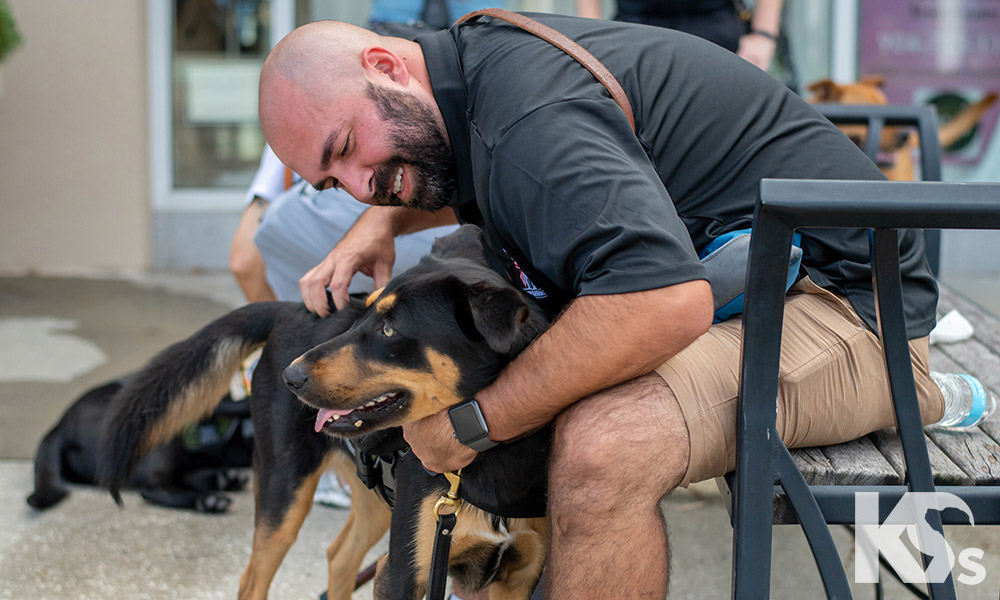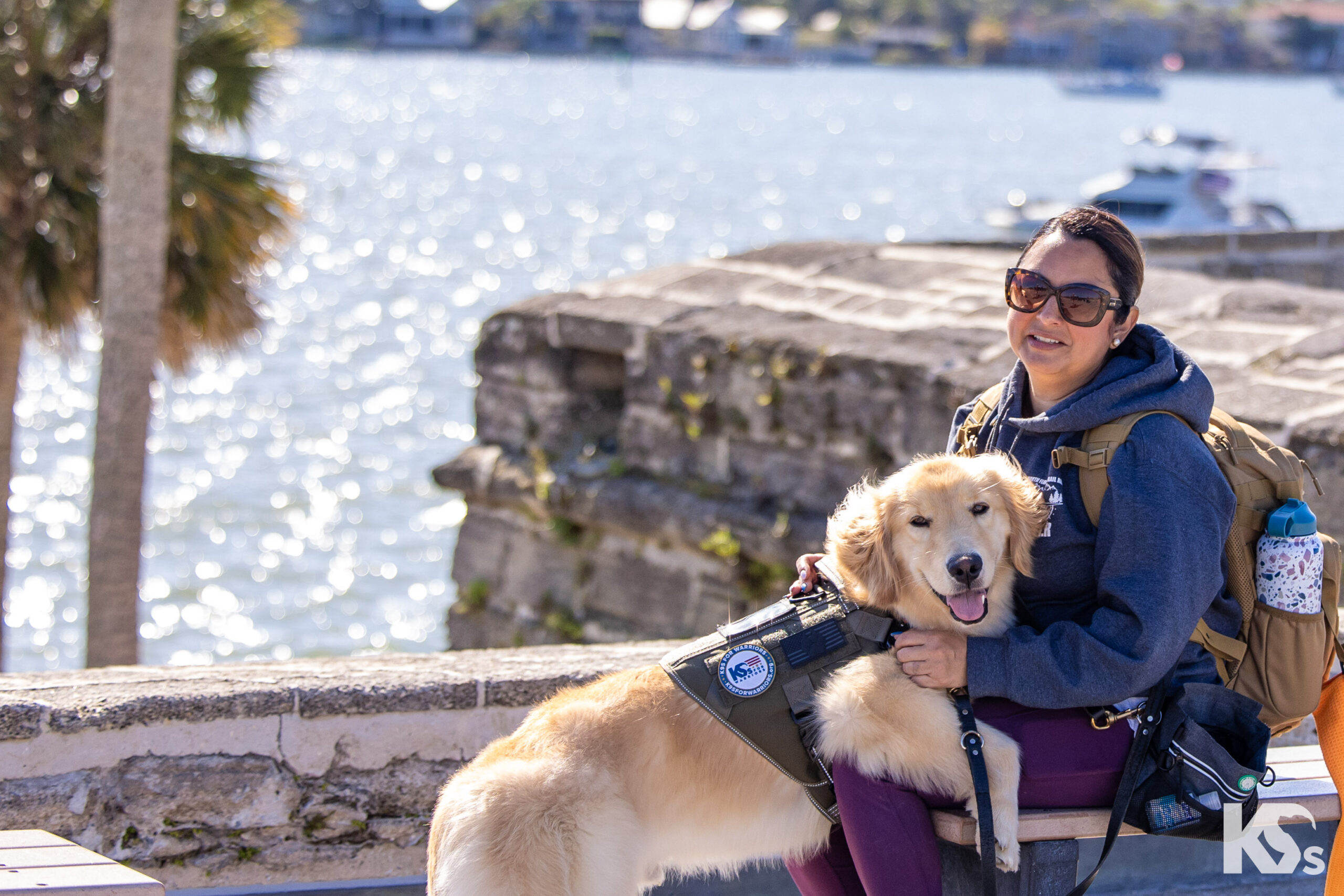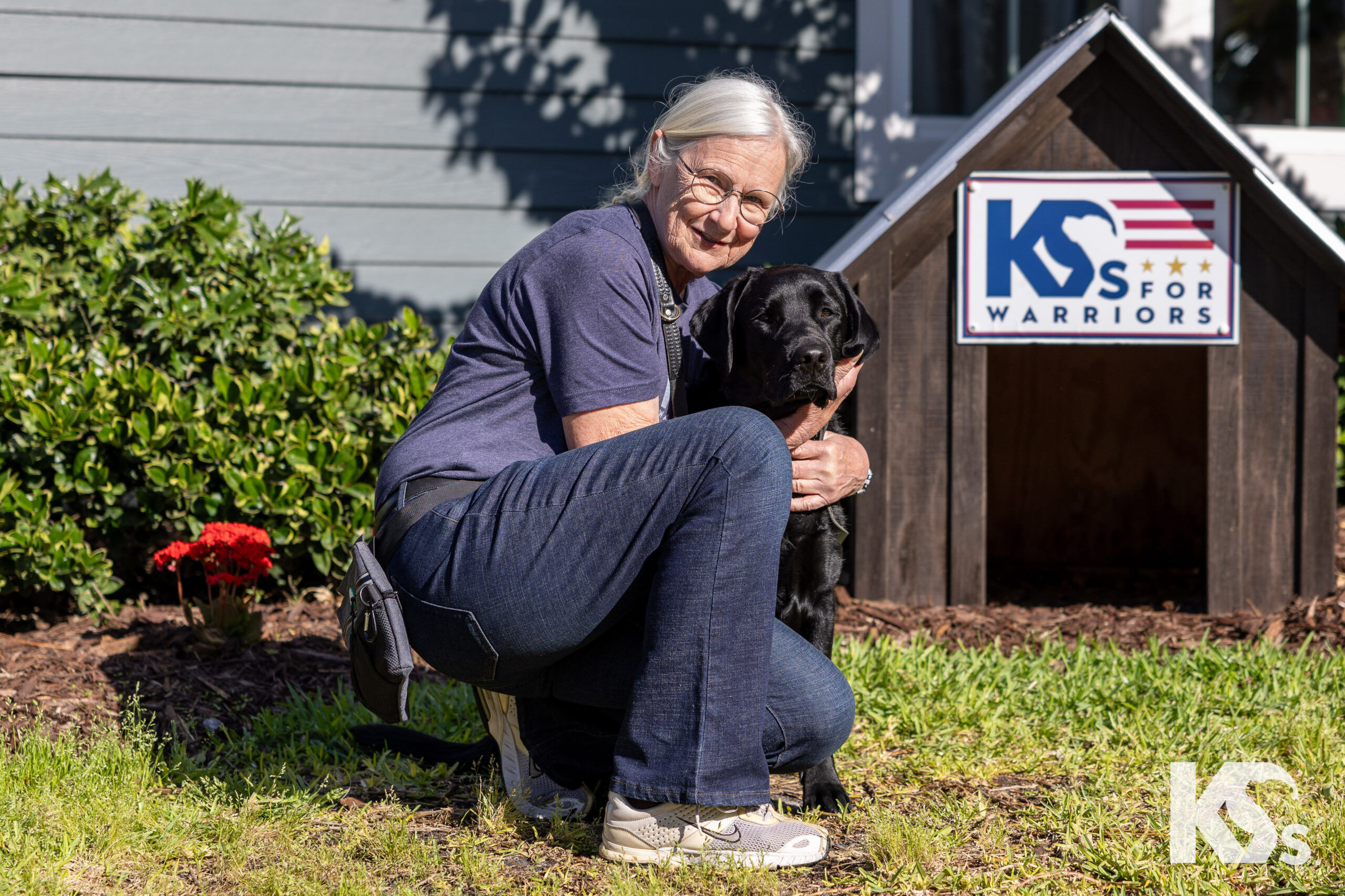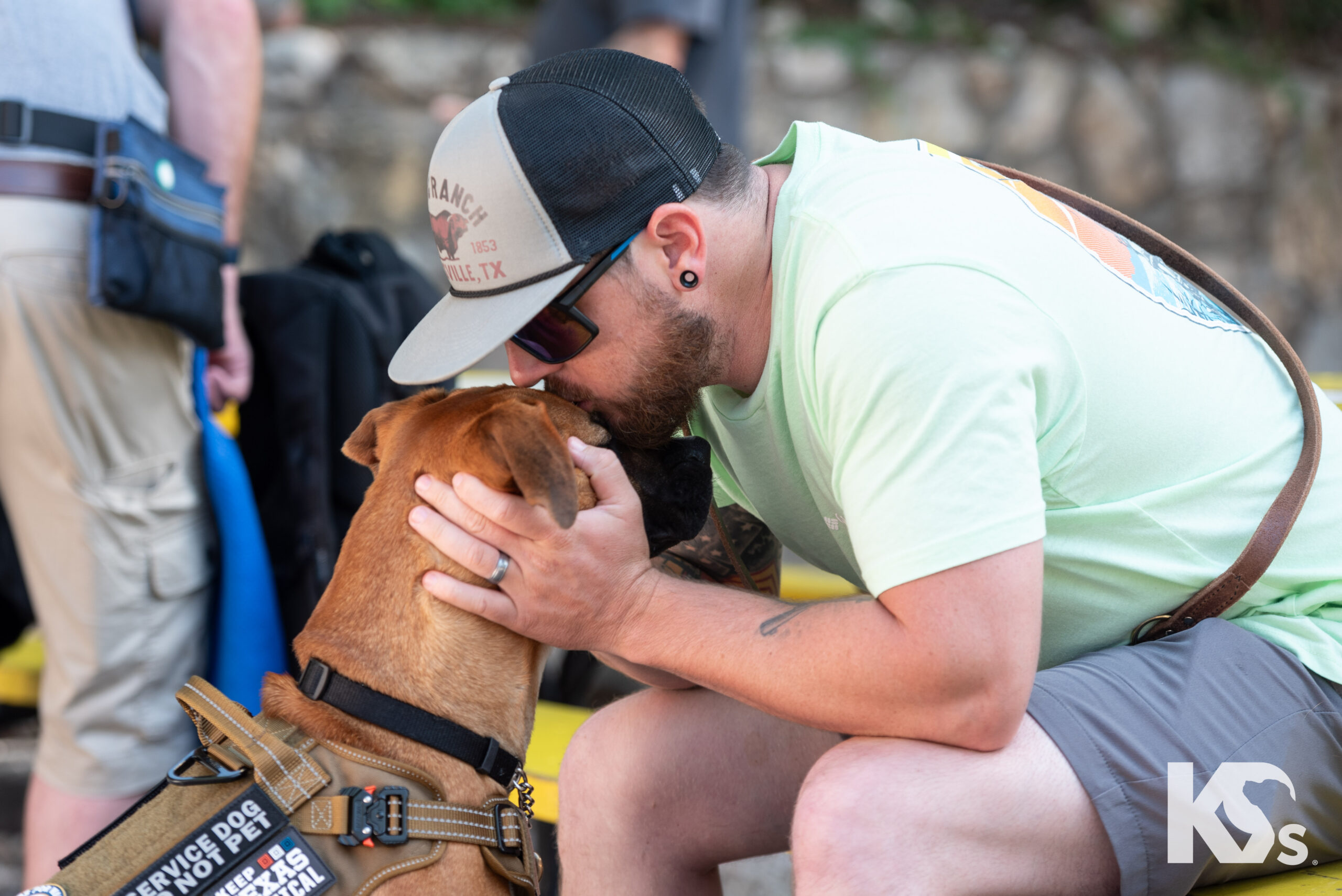"The day I had to resign from my position was the day we did a fire drill, and I forgot a classroom," said Army veteran Eli.
Army veteran Eli lives with the daily reminders of his service, suffering from PTSD and traumatic brain injury (TBI).
Eli is one of the nearly half million U.S. service members diagnosed with TBI since 2000. (CDC)
Breaking the News
A few months after getting married, Eli enlisted in 2010. He’d always felt a deep-seated need to serve his country, so in January of 2011, he left for basic training.
When he returned home, he landed his dream job as an educator, still actively completing weekend drills.
He quickly rose through the education ranks, earning a promotion to dean of students by 2012, but when the opportunity to deploy came, he felt the pull, so he volunteered.
He came home to break the news to his wife, but she also had news to share — she was pregnant.
“She told me in the fetal position in tears when I got back,” he remembers. “My first child was born two days before I left.”
Leaving his new family behind, Eli deployed in spring of 2013.
She told me in the fetal position in tears when I got back. My first child was born two days before I left.
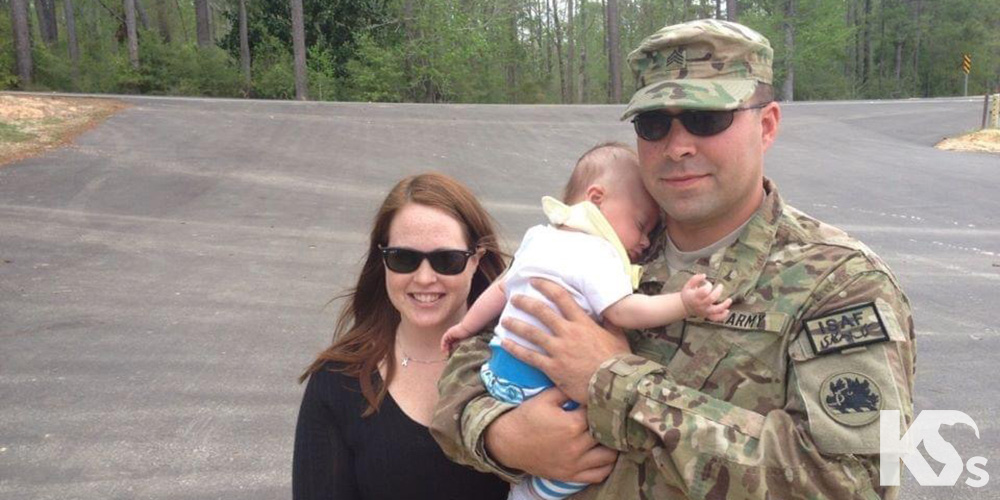
If They Would Just Stop Shooting
“The very first day we got to Kyrgyzstan, we were attacked,” he said.
“You’re excited. You’re ready to go,” he remembers. “But you’re totally unprepared.”
The physical conditions were brutal.
“Every day, you have sand blowing on you, and it’s 110 degrees,” he said. “The mountain provinces, if they would just stop shooting at you long enough, would be beautiful.”
While working on an Air Force base, Eli was responsible for security and access control for thousands of civilians and military personnel, and the pressure built up.
Eli remembers lying awake at night concerned for the safety of his peers.
At the time, teams were working to deactivate buried explosive mines in the field near the base.
“It was an active field, and everyone knew not to walk through it. Saying that out loud makes my brain go numb,” Eli remembers.
Eli could not prepare for what would come next.
Band-Aid for a Bullet Hole
“A rocket came in,” he said.
“I was wearing my Kevlar, but I ended up with some shrapnel in my neck,” he said. “Your ears are ringing. You’re confused.”
Eli wasn’t unconscious for very long, and upon awakening, he convinced himself he was fine.
“From when I first got hit, it probably took a week for me to have any sense of how bad it was,” he said.
After the attack, he received ibuprofen and water from the medic, and he was sent on his way.
It wasn’t until days later that he started to notice something was wrong.
Nowhere to Hide
A few days went by, and it started to sound like the TV was constantly on behind me, like a fan.
He told his medic friend, “I don’t know what day it is anymore.”
“I wrote all the wrong reports. I just issued reports I had to go back and delete, because when I went back to read them, they were all wrong,” he told his friend.
That’s when the physical tolls started to register on his body.
“A few days went by, and it started to sound like the TV was constantly on behind me, like a fan,” he said. “I started to watch people’s lips to read what they were saying.”
“Then, I’m waking up, and I’m wet, and I have stains. The dreams are bad,” Eli recalls.
He told his medic friend, “My knee collapsed today. I can’t walk without supporting myself.”
This was the third day in a row of accidents — he’d lost control of his bowels.
“When I lift my arm, it feels like someone put a knife in it,” he told his buddy.
His friend, concerned for his wellbeing, advised him to seek medical attention, but Eli was reluctant at the time.
“I don’t know that I helped my situation in any way, shape or form, because I refused medical treatment for a long time,” he remembers. “I said, ‘I’m fine. I should be good.’”
When he collapsed in front of his peers, the decision was made for him.
“This, when the guys had to pick me up off the ground, was real,” Eli recalls.
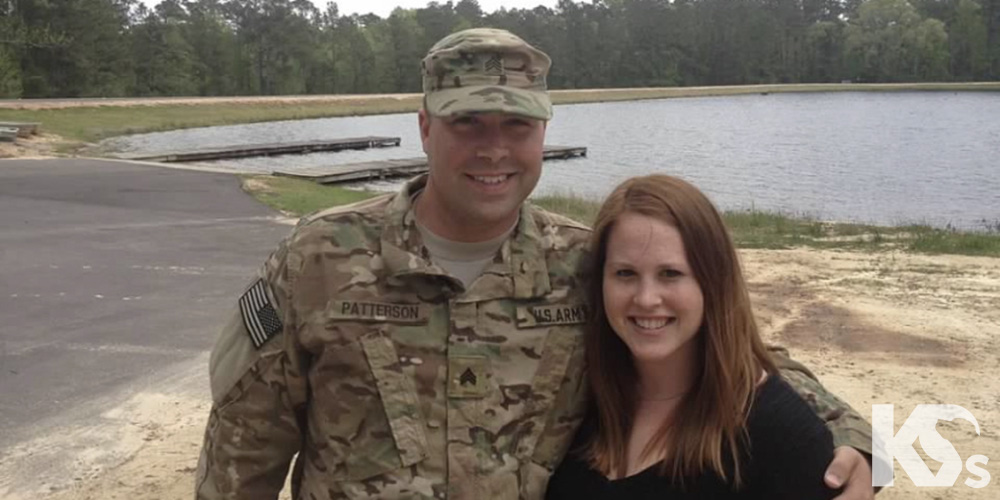
Ask & Answer
From there, they started medical evaluations, and he found himself, once again, coming to terms with his injuries.
“During the medical evacuation process, they ask you the question, ‘Are you able to do your job?’” he remembers.
“You have to say, ‘No.’”
“That’s when they send you home. Someone has to ask it, and someone has to answer it,” said Eli.
After admitting to the extent of his injuries, the healing journey was just beginning for Eli.
Upon returning stateside, the medical evaluation process was lengthy.
It wasn’t until participating in a 12-week program at the Shepherd Center in Atlanta, Georgia, that Eli received a diagnosis for traumatic brain injury, or TBI.
A traumatic brain injury is defined as a form of acquired brain injury that occurs when a sudden trauma causes damage to the brain. TBI may occur when the head suddenly and violently hits an object, or when an object pierces the skull and enters brain tissue. (NIH)
A Different Man
The diagnosis was a difficult pill to swallow.
“I went from being this incredibly high-functioning administrator to stumbling over my words,” Eli said.
Eli’s wife, Courtney, said a different man returned from war, a different man than the one she married.
“Before Eli was injured, he was sharper than a tack,” she said. “He was quick-witted, and he was never sick.”
“Since his TBI, he gets easily disoriented and distracted, and he gets sick very easily,” Courtney said.
This Is My Two Weeks
After returning to civilian life, Eli had resumed his previous career, working as a school administrator, ensuring the safety and wellbeing of students. But things weren’t quite the same.
“The day I had to resign from my position was the day we did a fire drill, and I forgot a classroom.”
He’d been able to withstand the laughter in the hallways and the accidents on the way to school, but this was different. This was putting the students he loved and cared for at risk.
He went to his boss’s office and said “You know, I’ve dealt with the throwing up in my office, the falling in the hallways, and wearing diapers to school.
I’ve dealt with the laughter and having to take notes in the staff meeting. But I will never put kids at risk,” he said.
“So this is my two weeks,” Eli recounted the end of his career.
After resigning, Eli questioned everything. He remembers feeling stuck, trapped by the dark feeling of starting over.
He found himself in his lowest low.
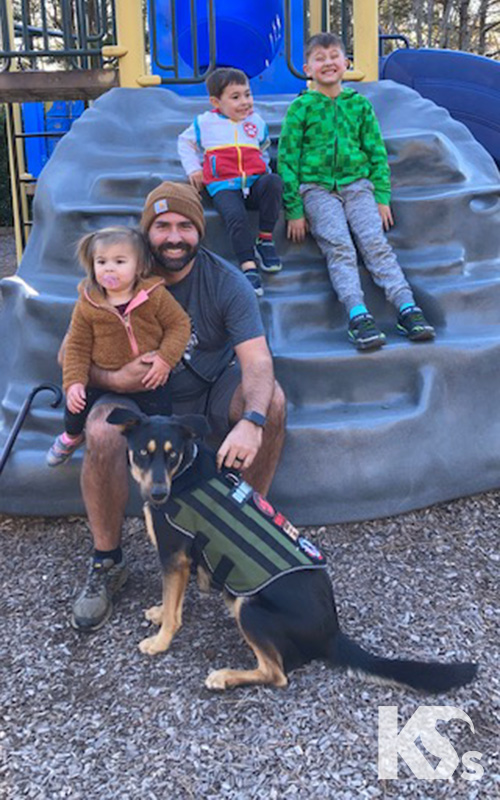
Permanent Solution to Temporary Problems
“This is a moment that I think many veterans face,” he said. “You’re thinking about a permanent solution to a temporary problem. That’s typically suicide.”
“Sometimes pain feels permanent,” he said.
Eli’s father recounts the helpless feeling watching his son struggle.
“It broke my heart. He was a talented educator, a sports coach, a great father, and a mentor to many,” he said. “I believe that the injury has taken away most of that. I cannot imagine what he saw and the memories that will haunt him forever.”
For Eli, a K9s For Warriors Service Dog changed everything.
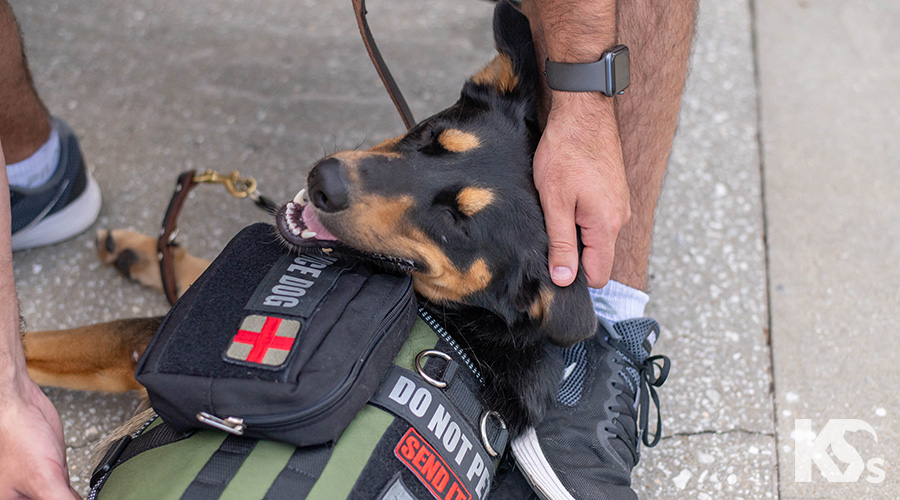
Living Is Pretty Awesome
Eli was paired with Service Dog Soz in 2020, and it was a match made in heaven.
“She doesn’t see temporary weakness. She sees value.”
Eli says Soz has helped him find the joy in living again — in making new memories with his wife and three kids.
“Anyone can die for a cause, and there are many noble causes. It’s really hard to live. It’s really hard, but living is pretty awesome,” said Eli.
He’s able to do activities again he believed were impossible.
“With Soz, I can go for hikes,” he said. “She can go get help if I need it.”
“Soz will protect me from trying to do stupid stuff on my own. She’ll brace me when I’m getting up,” Eli said.
Living with a TBI, Eli often finds himself overstimulated and overwhelmed by sights and sounds in public settings.
“I have convergence disorder, and my brain doesn’t process information correctly,” he said.
“But when I start to crescendo into overwhelmed, she interrupts that.” He said. “Soz will do the nose poke to get my attention, working as a distraction.”
To this day, Eli still struggles with concentration and identifying emotions.
He makes lists and leaves post-it notes around the house in an attempt to organize his thoughts.
Eli’s wife said Soz has been a game-changer for their family.
“Soz is a vital part of Eli’s recovery,” Courtney said. “I’ve seen Eli smile so much more.”
She’s even saved him from potentially life-threatening injury after a fall down the steps.
“It was a two-story flight of stairs, and Soz ran to the backyard, caught me, and pushed me so that my airways stayed open.” Eli was incredulous. “She stayed with me until I was up.”
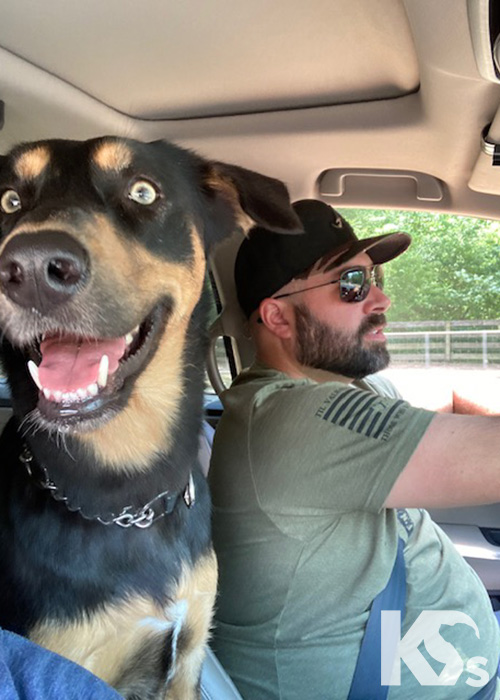
For Eli, and many other veterans living with a traumatic brain injury diagnosis, a Service Dog can be lifesaving.
“Soz made herself vulnerable to me, and I have made myself vulnerable to her. That’s what we do for each other.”
Soz made herself vulnerable to me, and I have made myself vulnerable to her. That's what we do for each other.
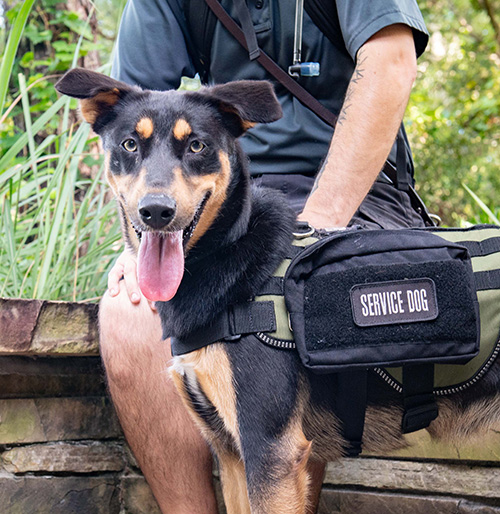
Meet Soz
Eli & Soz’s Graduation Date
October 2020
Soz’s Sponsor
Troopers Assisting Troops & James Sozomenou
Soz’s Name
Funding for Soz’s training was raised primarily by James Sozomenou in honor of his father, a Greek immigrant who served in Vietnam and earned a Purple Heart and a Bronze Star Medal
Soz’s Rescue Shelter
San Antonio Animal Care Service
If you, or a veteran you know, are interested in applying for a Service Dog, start now.
Learn more about how traumatic brain injuries affect United States veterans by clicking the link below.

